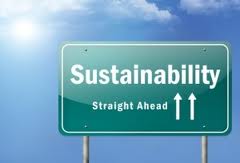Sexy Sustainability: The Missing Element in Effective Father Engagement
2 min read
Date Published: 12/18/2012
Last Updated: 10/08/2021
National Fatherhood Initiative Blog / Latest Articles
2 min read


Sustainability planning and execution of that plan is the most important investment for any social service agency or non-profit organization looking to effectively engage fathers, mothers, and the community around responsible fatherhood. Planning is not as “sexy” as starting up a new program for dads, but it is the groundwork that makes the sexy programming possible...and sustainable.
All too often I’ve seen the disruption (or elimination) of fatherhood services in communities because the larger agencies where the fatherhood services were offered didn’t weave this work into the fabric of their organizational culture. I’ve seen grant writers miss opportunities to write fatherhood resources into proposals that focus on broader issues, but clearly have a father factor involved. I’ve seen executive staff give up trying to hire male staff prematurely. There have been missed opportunities because staff have not formally mapped community assets or looked seriously at the father-friendliness of the agency’s physical environment.
Conversely, the “best practice agencies” that I’ve come across over the years consistently assess and improve their leadership development, organizational development, program development, and community engagement from the lens of father engagement and convert their assessment to specific tasks that have a clear “who, what, when” attached.
Moreover, quantitative data -- which we gathered running a federally-funded project to build organizational sustainability in the fatherhood field -- reveal that agencies that develop action plans around the abovementioned categories increase overall sustainability in the short term, and that those gains hold in the long term. Ninety-eight percent of those organizations increased their sustainability by the end of the first year of developing these father-friendly action plans. Ninety-three percent maintained or further increased their sustainability after 2 years (Source: 2010, National Responsible Fatherhood Capacity-Building Initiative, Inspiration to Implementation).
In spite of this information, many agencies lack the resources, tools, awareness, and support to take this process as seriously as they should. The end result is that we have few (if any) parenting programs in our communities that are balanced in male and female participation. This translates into fewer men becoming better dads and lower child well-being outcomes.
When agencies are forced to take a hard look at their organizational culture rather than just their services (which tends to be the default for most), it helps them create the Velcro that their programs and services can stick to. But making these kinds of changes are not for the faint of heart and agency leaders need to be properly prepared, equipped, and trained to understand how to disrupt the present in order to change the future.
It is for that reason that National Fatherhood Initiative (NFI) is committed to helping organizations attain sustainability for fatherhood work regardless of what the funding landscape looks like. In our five years running the abovementioned federal project, we learned how to measure gains in sustainability and capacity, and how to help organizations maximize those gains. From our free Father Friendly Check Up assessment to our 5 Steps to Fatherhood Programming Success, NFI recognizes that systemic change and better outcomes for fathers and families begins with community leaders and agencies doing a better job of creating a continual and uninterrupted stream of services for fathers.
Here’s to making sustainability sexy… for the sake of our nation’s fatherless children.
Photo credit here.
Date Published: 12/18/2012
Last Updated: 10/08/2021
Download the ebook to learn how to create fatherhood initiatives that engage every sector of community life.

Train Your Staff
Fatherhood Programs
Fatherhood Data
© 2025 National Fatherhood Initiative®. All rights reserved.